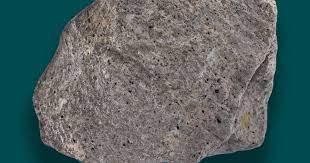
Nature has always provided us with remarkable resources that offer diverse applications. One such extraordinary substance is bentonite, a versatile clay with an array of practical uses. Bentonite is a unique mineral formed from volcanic ash and composed primarily of montmorillonite. This remarkable clay exhibits exceptional properties, making it an essential ingredient in various industries, ranging from construction and agriculture to cosmetics and environmental remediation.
Bentonite owes its origin to the process of weathering volcanic ash over thousands of years. It occurs in abundant quantities worldwide, with significant deposits found in countries such as the United States, China, India, and Greece. The main constituent of bentonite is montmorillonite, a smectite group mineral characterized by its high cation exchange capacity and expandable crystal lattice structure. Other minerals, such as quartz, feldspar, and volcanic glass, may also be present, affecting the specific properties of the bentonite.
The unique properties of bentonite contribute to its remarkable versatility and applicability across various industries. Some of the key properties include:
Swelling and Absorption: Bentonite has the ability to swell and absorb water, expanding its volume several times over. This property is crucial in applications such as drilling muds, where it helps control fluid loss and stabilizes boreholes.
Thixotropy: Bentonite exhibits thixotropic behavior, meaning it becomes gel-like when agitated and returns to a more solid state when left undisturbed. This characteristic makes it valuable in industries such as paints, inks, and greases.
Cation Exchange Capacity (CEC): Bentonite has a high CEC, allowing it to adsorb and release cations. This property finds applications in water treatment, soil improvement, and the removal of heavy metals from wastewater.
Plasticity and Binding: Due to its plasticity, bentonite can be molded and shaped into various forms. It also possesses excellent binding capabilities, making it an ideal additive in the production of foundry molds, ceramics, and construction materials.
Nigeria, a country rich in mineral resources, is home to vast deposits of bentonite. Bentonite is a versatile clay mineral with various industrial applications due to its unique properties. This article explores the location of bentonite deposits in Nigeria and sheds light on the diverse uses of this valuable resource.
Bentonite is a type of clay consisting mainly of montmorillonite, a soft and pliable mineral formed from volcanic ash. It is characterized by its high water absorption capacity and plasticity, making it an exceptional material for various industries.
Location of Bentonite Deposits in Nigeria
Nigeria boasts substantial bentonite deposits, with major occurrences found in different states across the country. The following are the notable locations of bentonite deposits in Nigeria:
Borno State: Bentonite deposits are found in commercial quantities in several areas of Borno State, particularly around the Dikwa, Ngala, and Konduga Local Government Areas. The clay beds in these regions contain high-quality bentonite suitable for industrial use.
Cross River State: Bentonite reserves exist in Cross River State, specifically in the Akamkpa and Ikot-Ekpene areas. The clay is of excellent quality, and the deposits have attracted attention from both local and international investors.
Edo State: Edo State, located in southern Nigeria, is another significant location for bentonite deposits. The clay-rich areas in Edo State, particularly around Ubiaja, Ukpeshi, and Okpella, have proven reserves and offer potential for large-scale mining operations.
Plateau State: Bentonite deposits can be found in Plateau State, primarily in areas around Bokkos, Riyom, and Barkin Ladi. The clay in these regions possesses excellent properties and has drawn the interest of mining companies and investors.
Adamawa State: Bentonite reserves are present in Adamawa State, particularly around Numan and Mayo-Belwa. These deposits offer considerable potential for exploration and commercial extraction of bentonite.
Uses of Bentonite
The versatile properties of bentonite make it an essential mineral in various industries. The following are some of its primary uses:
Drilling Mud: Bentonite is extensively used as a drilling mud in the oil and gas industry. It helps control the pressure, lubricates the drill bit, and removes drill cuttings, ensuring efficient drilling operations.
Foundry: Bentonite is a key component in the foundry industry, where it is used as a binder in molding and casting processes. Its high binding capacity and thermal stability make it an ideal material for creating molds for metal casting.
Construction and Civil Engineering: Bentonite finds application in construction and civil engineering projects. It is used as a sealing material in the construction of ponds, canals, and reservoirs to prevent water seepage. Additionally, bentonite is employed in drilling boreholes and creating slurry walls for excavation and stabilization purposes.
Environmental Remediation: Bentonite has excellent adsorption and absorption properties, making it valuable for environmental remediation. It is used to remove contaminants and toxins from wastewater, acting as a natural filtration and purification agent.
Pharmaceuticals and Cosmetics: Bentonite is utilized in the pharmaceutical and cosmetic industries. It is a common ingredient in medicinal and skincare products due to its ability to absorb impurities and toxins, making it effective in facial masks, ointments, and digestive supplements.
Agriculture: Bentonite has agricultural applications as well. It is used in soil amendments to enhance soil structure and water retention capacity. Bentonite clay can also act as a natural pesticide, protecting crops from pests and diseases.
In conclusion, Bentonite deposits in Nigeria offer immense economic potential and have attracted attention from local and international investors. The country's abundant reserves, located in states such as Borno, Cross River, Edo, Plateau, and Adamawa, provide a solid foundation for the development of the mining industry. Moreover, the diverse applications of bentonite across industries such as oil and gas, construction, foundry, and agriculture make it a highly valuable resource.
As Nigeria continues to explore and exploit its bentonite deposits sustainably, it can harness the benefits of this versatile clay mineral to drive industrial growth, create employment opportunities, and contribute to the nation's overall development.






















